Women who changed the history of medicine
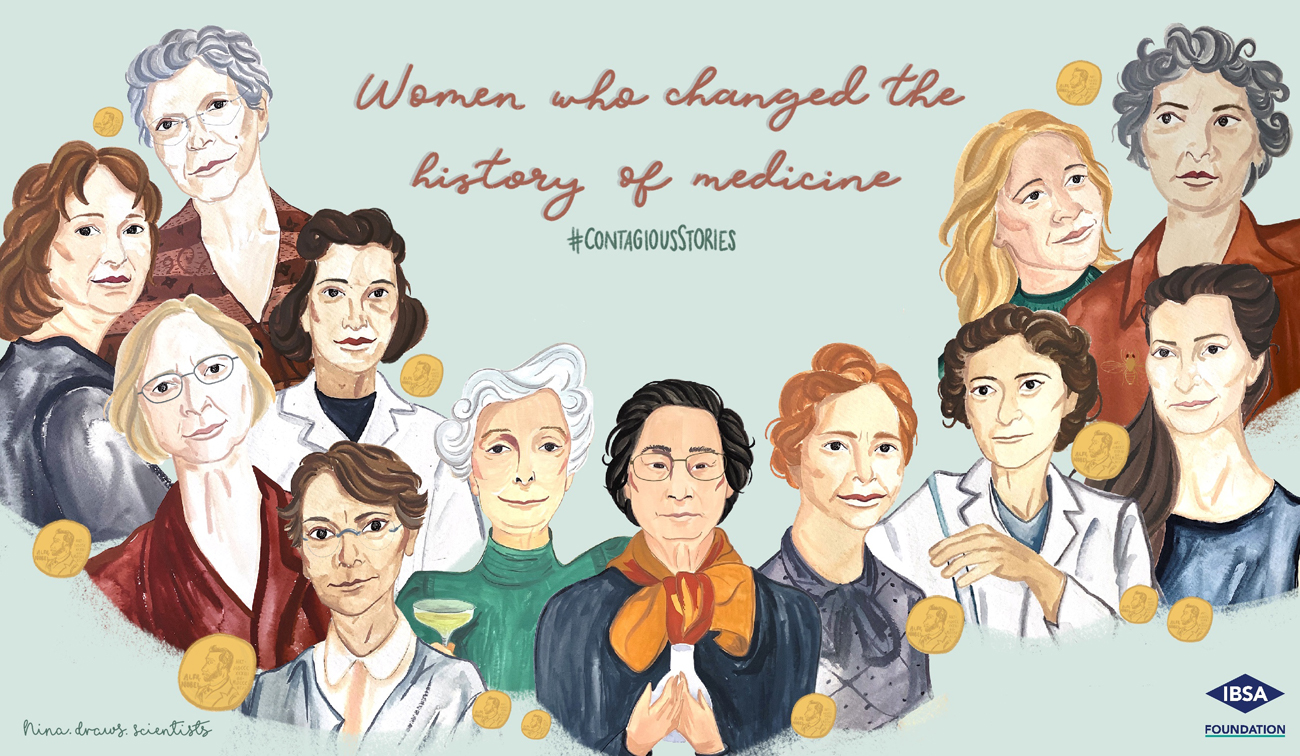
It is a fact: women are under-represented among Nobel Prize winners.
Between 1901 and 2019 out of 923 prize winners
- only 54 women have won this prize
- 20 of which in the field of science (physics, chemistry and medicine)
- and among these, only 12 have been awarded the Nobel Prize in Medicine
- 2 of whom were awarded the prize as spouses
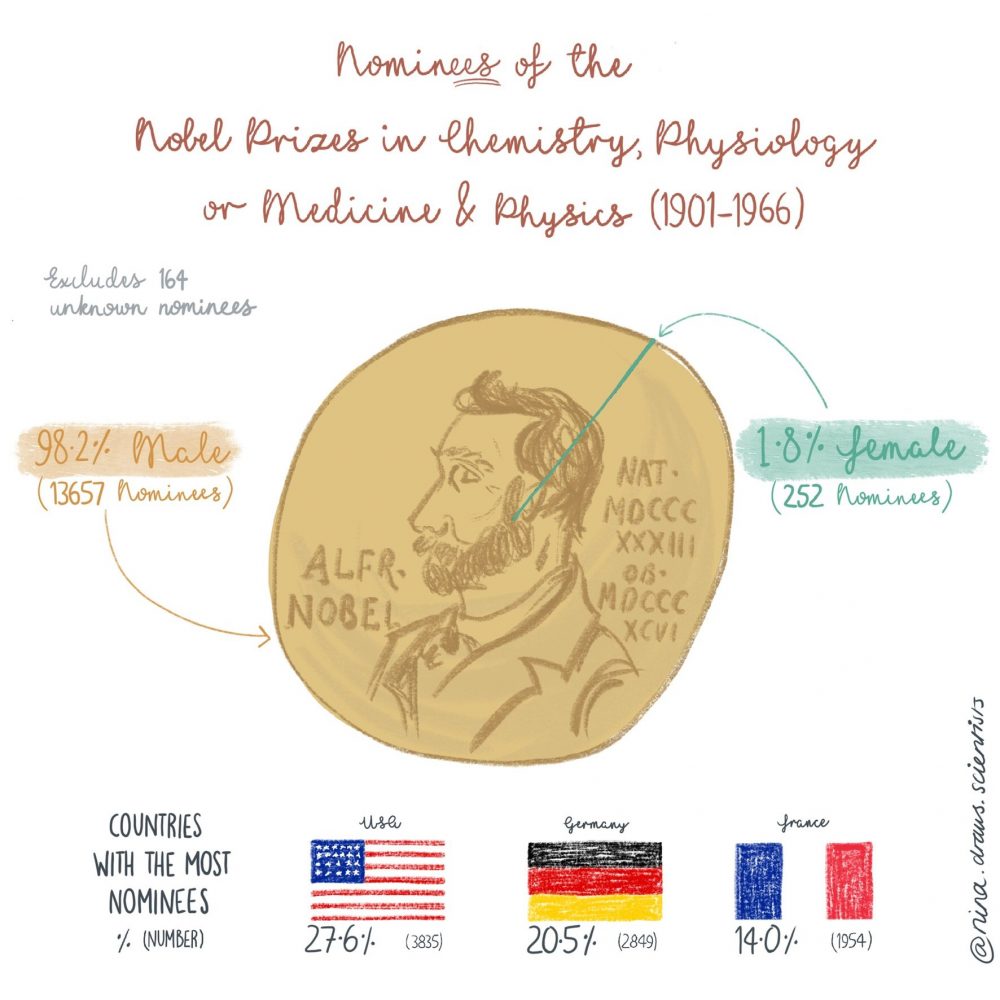

The reason for this has been unequal access to education, technology and leadership positions, which has precluded many brilliant female minds from careers in science and blocked their progress.
The lack of prizes and acknowledgement is a reflection of the inequality that women too often experience throughout their careers. The gender gap in science, technology and innovations leads to wasted talent and unexploited discoveries. And without visible and recognized female scientists, who set an example and act as role models, young female scientists and researchers can be discouraged from dedicating their lives to scientific research.
Following on from the first series of #contagiousstories we are dedicating a second series to the 12 women who have won the Nobel Prize in Medicine.
See below timeline for their discoveries.
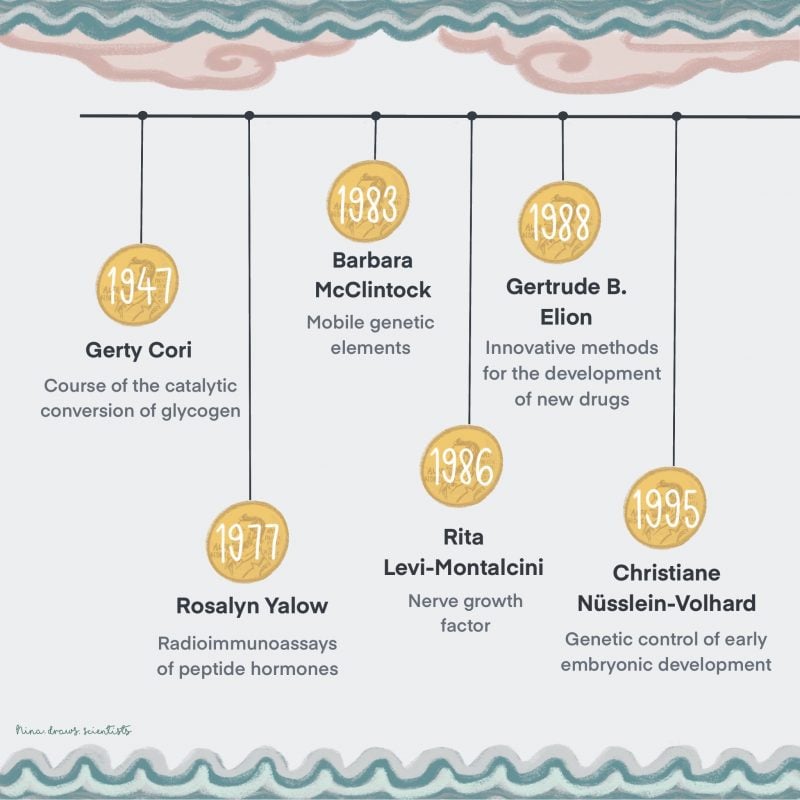
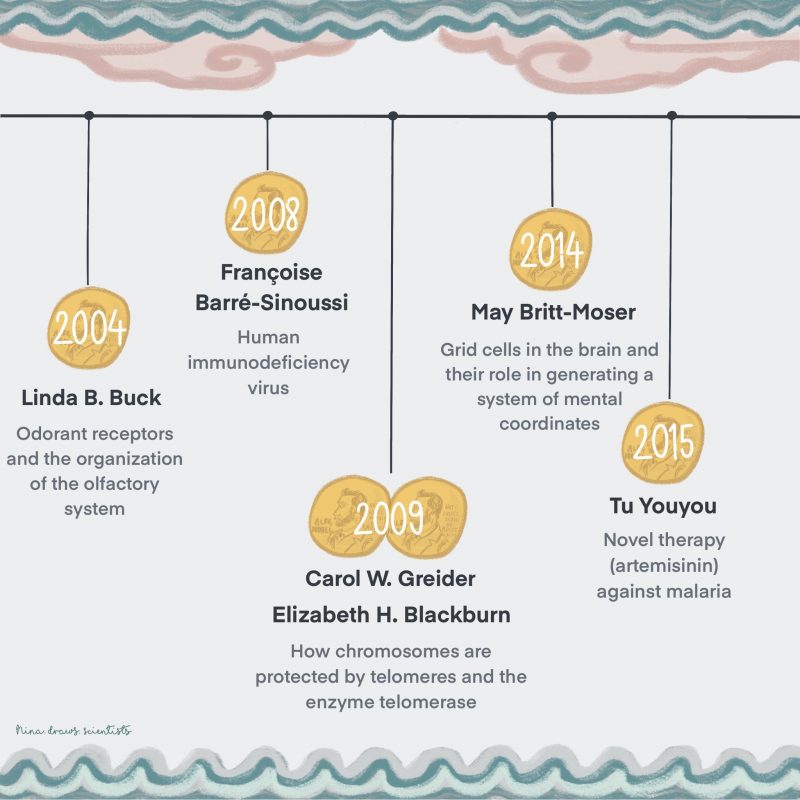
Our goal is to draw attention to the women who have contributed to the future of medicine and who are still guiding new generations of young women by encouraging empowerment and gender mainstreaming.
Each of them has made a fundamental contribution to research.
Let’s just think about the discovery of artemisinin, the anti-malarial drug developed by the Chinese immunologist Tu Youyou (2015 Nobel Prize), or the research into cellular ageing, which led Elizabeth H. Blackburn and Carol W. Greider (2009 Nobel Prize) to understand how telomeres protect chromosomes from the deterioration of genetic matter.
As we will see, each of their stories is different. Yet, they have several traits in common.
- Audacity: they are not afraid to go down roads never travelled before by their colleagues
- Brilliance: they see unexpected connections between phenomena that seem very different
- Curiosity: they are interested in seemingly “minor” aspects and create new avenues of research
- Energy: they work enthusiastically and tirelessly, which makes them unstoppable
- Generosity: they know how to work as a team and share their discoveries with their colleagues
- Passion: they dream about changing the world and reducing people’s suffering
- Resilience: they never give up when faced with the difficulties and obstacles they find along their path
- Tenacity: as young scientists they study a specific area, which they take forward for the rest of their lives
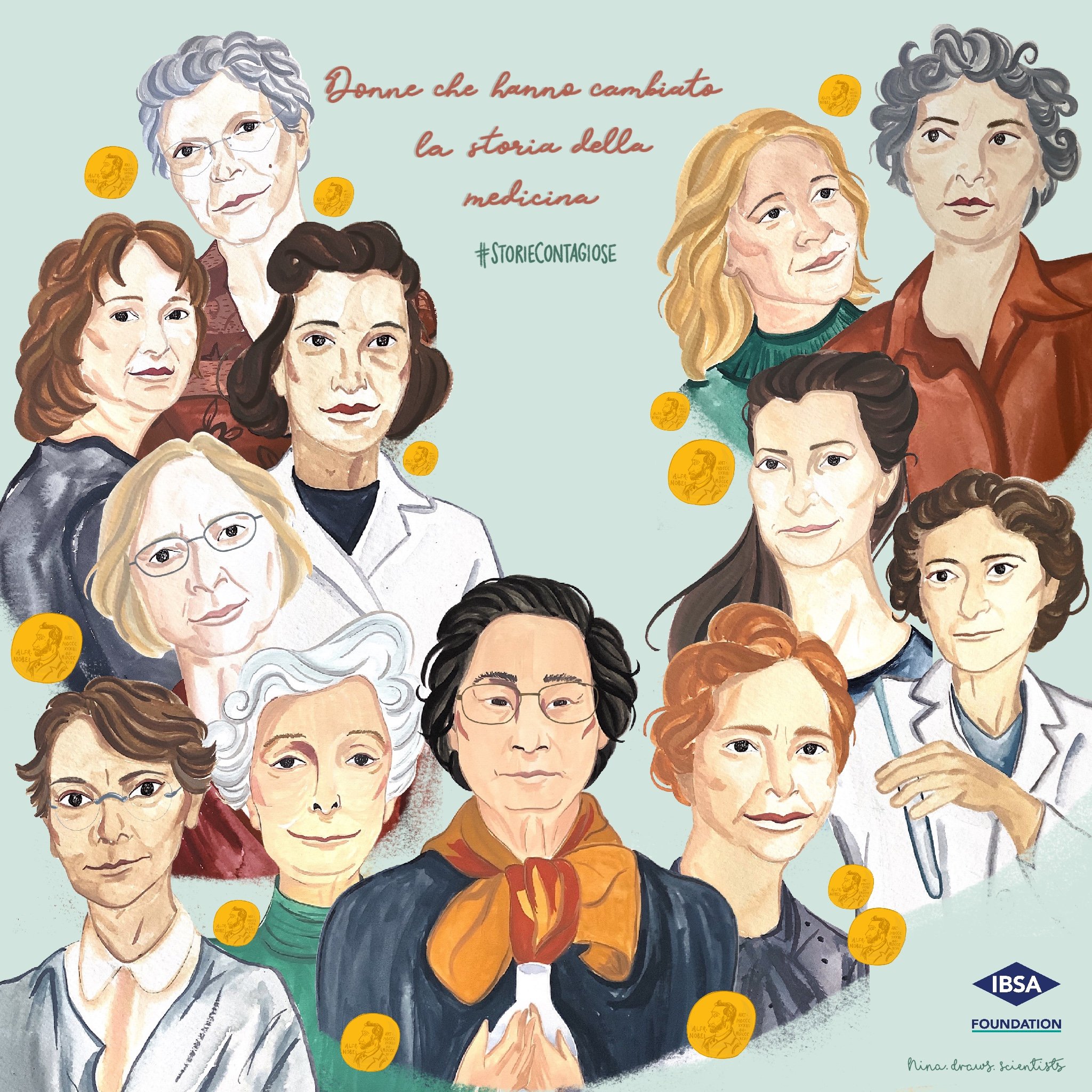
The #contagiousstories series becomes a book
Discover the lives of these 12 extraordinary scientists, from Gerty Radnitz Cori, the first female Nobel laureate in medicine, to Tu Youyu, the first Chinese scientist to receive a Nobel Prize in a scientific category without a doctorate, degree or training abroad. Available in Italian only.From our Blog
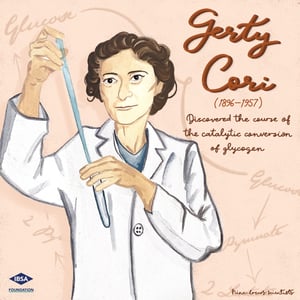
The first female Nobel Prize winner in medicine.
Read More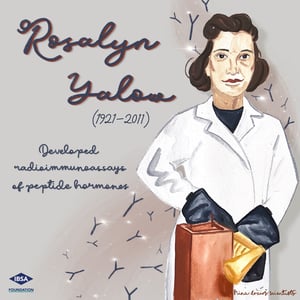
The mother of endocrinology
Read More
The founder of cellular genetics
Read More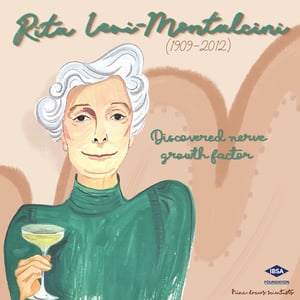
The pioneer of neurobiology
Read More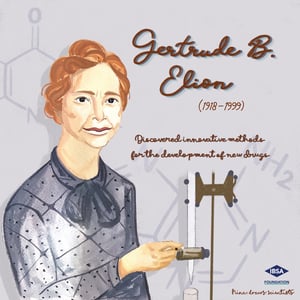
The scientist who revolutionized pharmacology
Read More
The genius of biochemistry
Read More
The scientist who unveiled the secrets of smell
Read More
The virologist who discovered the HIV virus
Read More
The explorer of cellular ageing
Read More
The youngest woman to win the Noble Prize in Medicine
Read More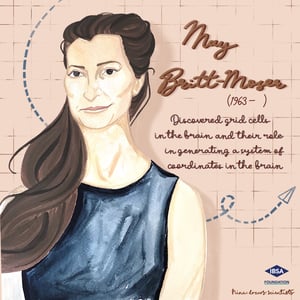
The neuroscientist who reconstructed the map of our brain
Read More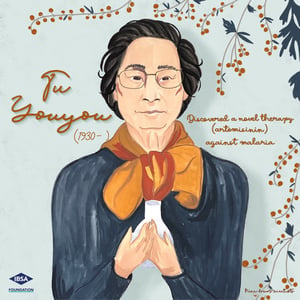
The Nobel Prize for her work on malaria
Read More